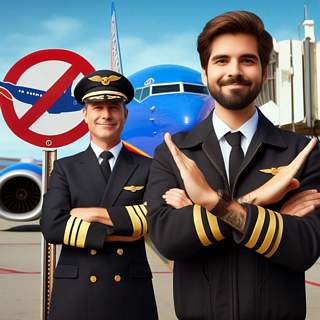 Southwest Airlines employs an “Avoidance Bid System,” similar to the “Do Not Pair” systems found at other airlines. This system allows first officers to select up to three captains they prefer not to fly with when scheduling their monthly rosters. The process is straightforward; it involves entering the captain’s employee number without the need to provide a reason for the preference.
Southwest Airlines employs an “Avoidance Bid System,” similar to the “Do Not Pair” systems found at other airlines. This system allows first officers to select up to three captains they prefer not to fly with when scheduling their monthly rosters. The process is straightforward; it involves entering the captain’s employee number without the need to provide a reason for the preference.
If Southwest’s crew scheduling system pairs a first officer with one of their “avoided” captains, the first officer will be reassigned to a different trip. Notably, captains do not have the same privilege to designate first officers they prefer not to fly with.
The Avoidance Bid System gained significant attention after the Southwest Airlines Flight 345 incident in July 2013. This incident involved a Boeing 737-700 aircraft experiencing a nose gear collapse during a hard landing at New York’s LaGuardia Airport. Despite receiving warnings from the first officer to abort the landing, the captain ignored the alerts. Subsequent investigations uncovered that the captain had received numerous grievances from many first officers she had flown with before; in fact, she was on many first officers’ “Do Not Pair” lists.
In professions such as aviation, which depend heavily on standardization and routine procedures, the impact of workplace likability is intriguing to ponder. When management overlooks individuals who struggle to collaborate and adhere to standard procedures, it poses a considerable risk to safe operations. Errant behavior, particularly from those in positions of power, can disrupt team dynamics, sow tension among colleagues, and weaken the efficacy of established protocols.
Idea for Impact: Ever stop and think if your coworkers would slap your name on their “Do Not Pair” list if our company had a system like that? Maybe your skills, experience, or even just your attitude could land you there. Likability is the glue that fortifies professional relationships and unlocks pathways to opportunities.
Leave a Reply